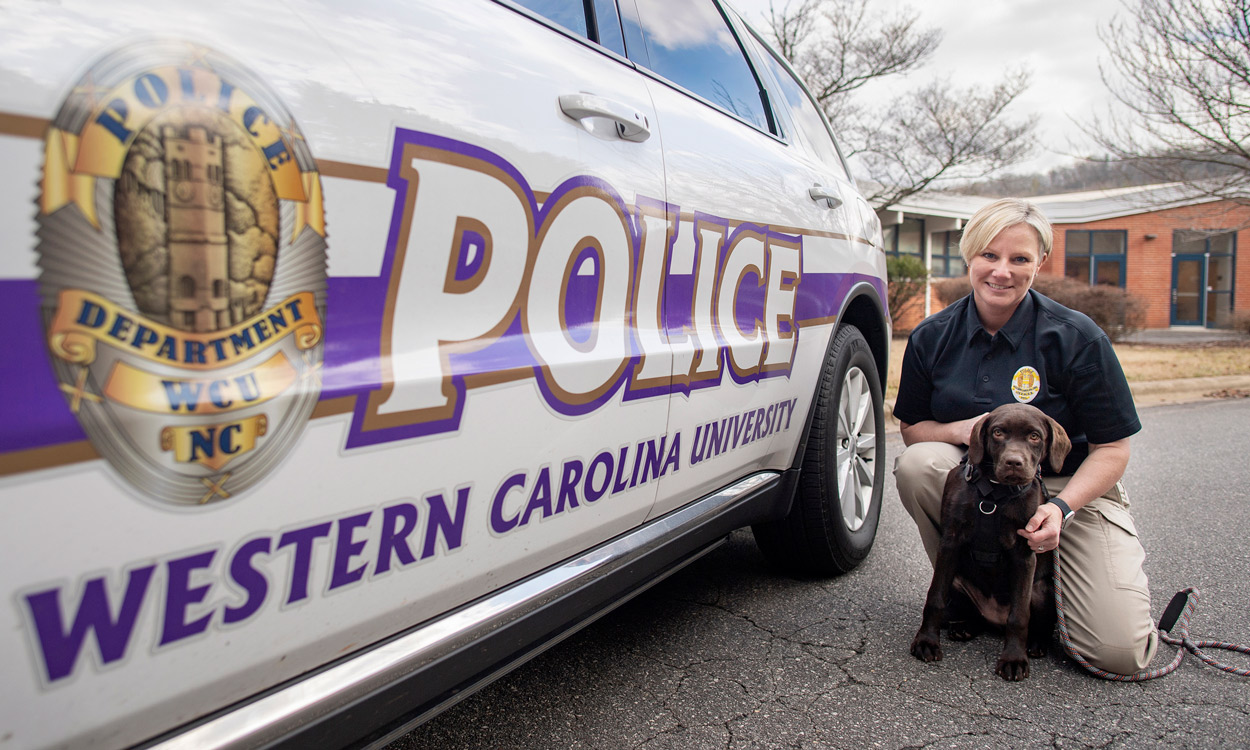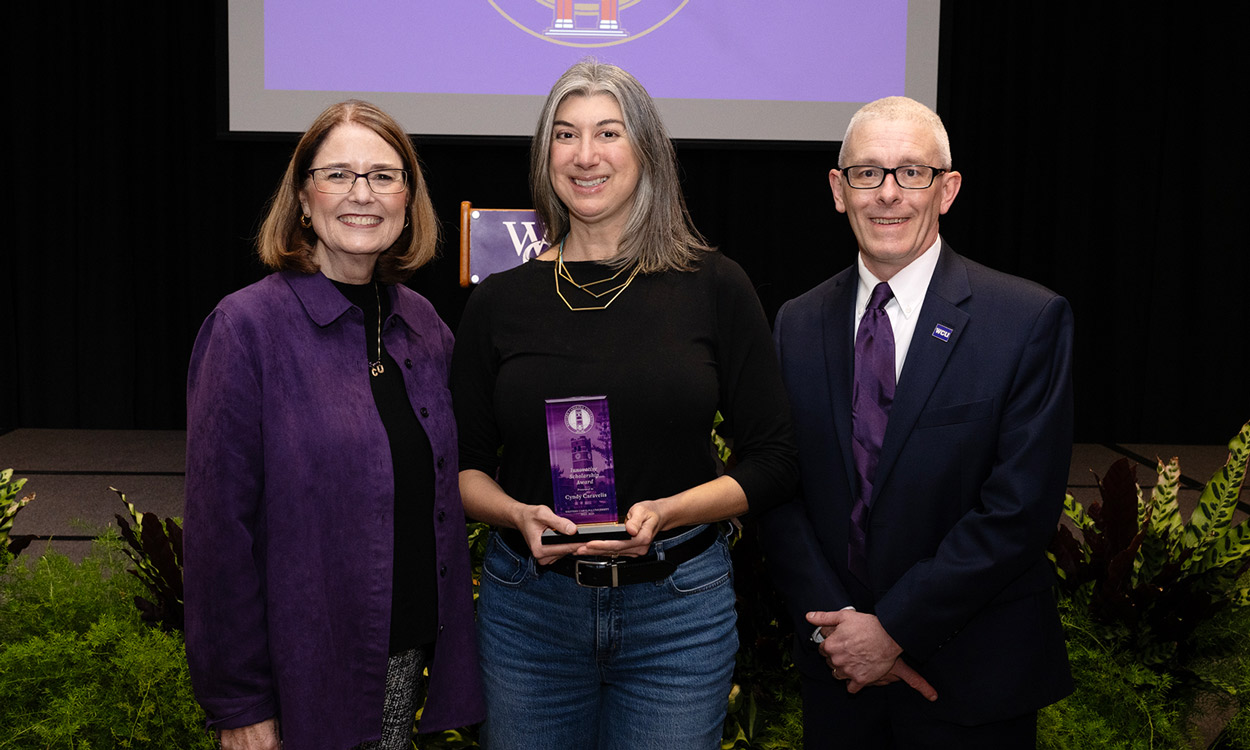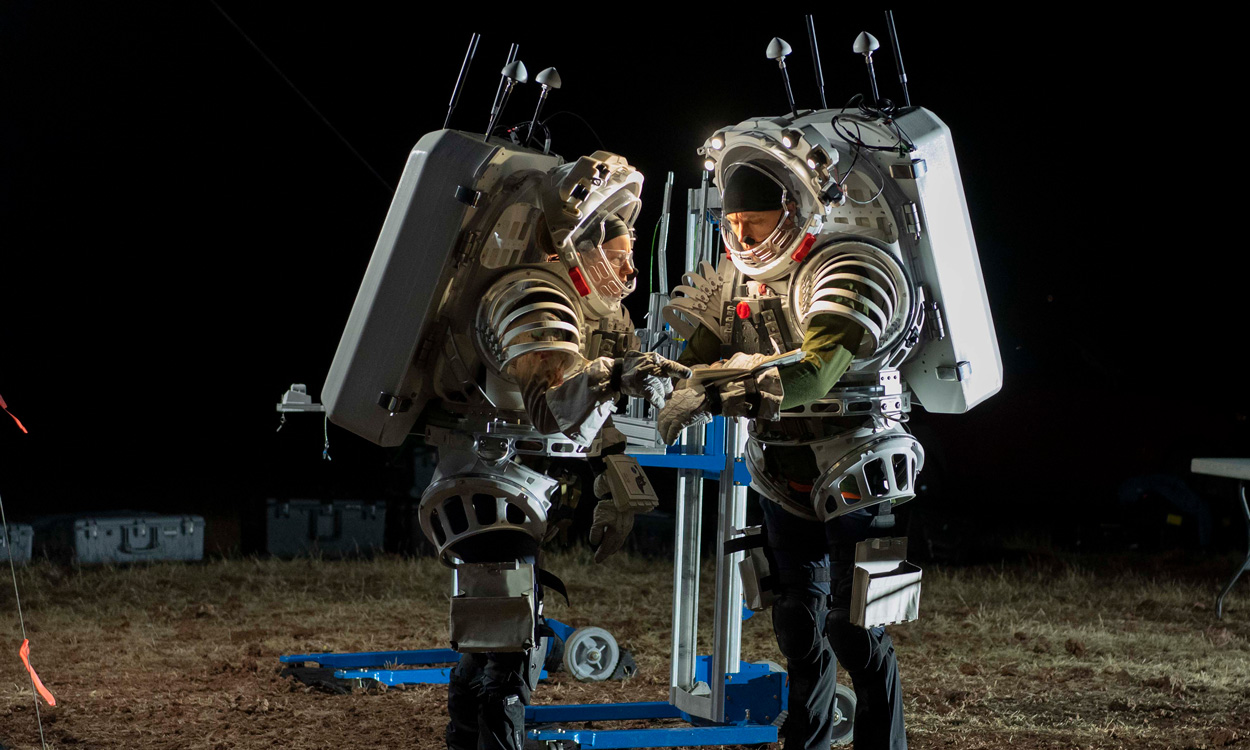University Police to add therapy dog to force
By Julia Duvall

Tammy Pavey, a WCU police sergeant, with Sasha, the department's new therapy dog.
Western Carolina University Police Department will soon add a new “officer” to their force.
A four-legged one.
“In 2020, I received a grant with the Great Smokies Health Foundation to have a dog trained as a therapy dog for domestic violence support for the Center for Domestic Peace,” said Cyndy Caravelis, professor in WCU’s criminology and criminal justice department. “When someone is a victim, it is an incredibly stressful process and there is a potential for trauma. Lots of research has been done all over the country to prove that having a therapy animal helps calm the victim and improve their overall experience.”
Caravelis’ dog Atlas was then trained as a therapy dog.
“We had great success with Atlas at the Center for Domestic Peace and at the Adults Working and Advocating for Kids' Empowerment Advocacy Center,” Caravelis said. “I also use Atlas as an education piece in the classroom. Having animals makes these difficult conversations easier to have.”
Caravelis then attended a social work conference and in one session learned about police departments having a therapy dog on staff and the benefits for not only community members, but the department itself.
Upon her return, Caravelis pitched the idea to Steve Lillard, WCU’s chief of police.
“After having discussions with the Police Community Advisory Committee and researching this type of program, I feel that having a therapy dog as part of our operations will allow students to feel more comfortable when speaking with officers after a critical incident has occurred,” Lillard said. “I also feel that our outreach efforts will be enhanced and the canine will allow for more opportunities for positive interactions during special events and programs.”
Tammy Pavey, WCU police sergeant, just happened to have a new chocolate lab puppy named Sasha with a big personality and the right disposition for the job.
“Once Tammy brought in Sasha, it was clear she would be a great therapy dog,” Caravelis said.
For the first nine months, Sasha will work on socialization and exposure to crowds, vehicles, clapping and other sounds and sights she may see on campus.
Once training is complete, Sasha will receive a national therapy dog certification with full credentials and will be available to provide comfort for students facing difficult situations such as reporting assault, going to court or other situations where a therapy dog could make a situation less tense.
“She gets so excited to put on her vest and come to campus for training,” Pavey said. “The one thing that really excited me early on was when I took her to Dr. Caravelis’ room for the first time and she just pranced down the hallway and loved all the attention she was getting.”
The focus for the police department has been to build trust with the campus community and interact in a way that is positive.
“When this idea came about, we were working the ball games and walking around the tailgating area petting the dogs and interacting with their owners, so now that I can share my dog with our students in a positive way, it is very rewarding,” Pavey said. “It is so great to see the positive interactions she is already having around campus.”
Not only will this benefit the students, but it will also be a great asset for campus police officers as well.
“When students experience trauma or victimization, what a gift to be able to give them this soft-landing space and also as a boost for our officers,” Caravelis said.

